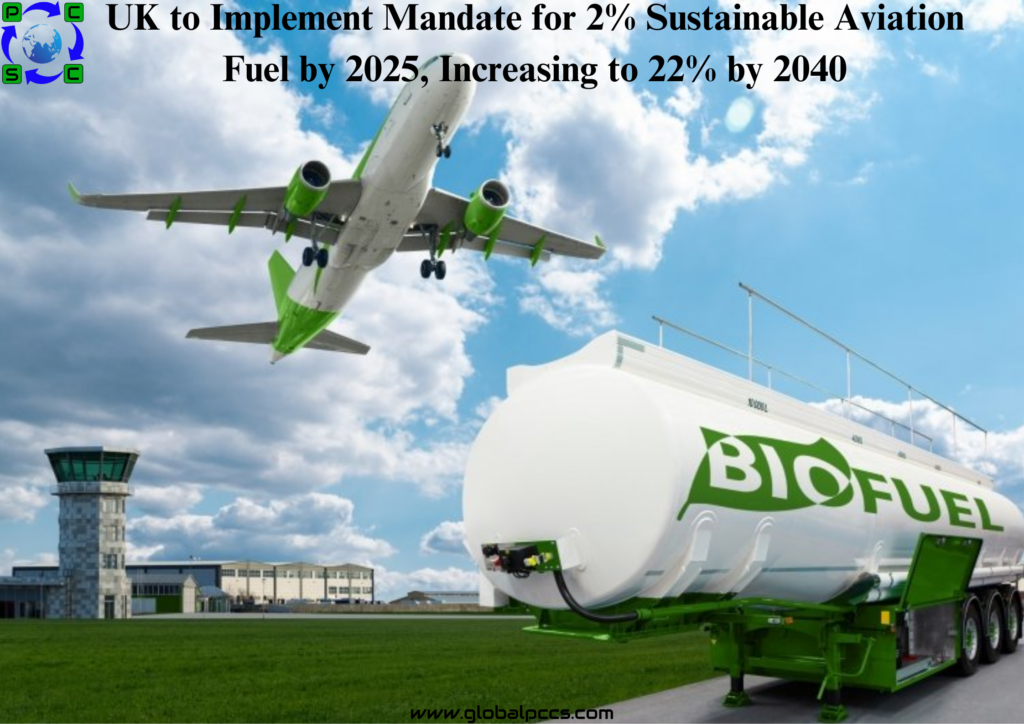
- SAF requirements will begin in 2025; by 2040, it will rise to 22%.
- 10,000 new employment and an estimated £1.8 billion economic gain.
- By 2040, emissions might be reduced by up to 6.3 MtCO2e.
With the introduction of the sustainable aviation fuel (SAF) mandate, the UK is leading the way in the direction of environmentally friendly flying. The SAF mandate states that starting on January 1, 2025, 2% of all jet fuel used in the UK must be sustainable. By 2030 and 2040, the goals are to be met by 10% and 22%, respectively.
Economic and Environmental Benefits
It is projected that the action will generate over £1.8 billion in economic growth and more than 10,000 new employment across the country. According to projections, the sustainable aviation fuel mandate will, by 2040, cut emissions by 6.3 million tons of CO2 equivalent and up to 2.7 million tons in 2030.
Innovative SAF Mandate Structure
Provisions to encourage feedstock diversity and advanced fuel innovation are part of the SAF mission. Hydroprocessed esters and fatty acids (HEFA) feedstocks are capped; after two years, the supply of HEFA is unrestricted, falling to 71% in 2030 and 35% in 2040. A separate requirement for electricity to liquid fuels will also begin in 2028 and increase to 3.5% by 2040.
Investor Confidence and Revenue Certainty
With the introduction of the revenue certainty mechanism (RCM) in the bill unveiled on July 17, sustainable aviation fuel manufacturers will have the assurance required to invest in new facilities around the United Kingdom. By lowering investment risks, this program helps to fulfill the SAF objective by guaranteeing a consistent supply of SAF for UK airlines and enhancing energy security.
Government’s Commitment
The government’s overarching goal of promoting economic expansion and positioning the UK as a leader in clean energy is encompassed by these projects.








 Authorised IMDS & CDX Training & Consulting partner for
Authorised IMDS & CDX Training & Consulting partner for






